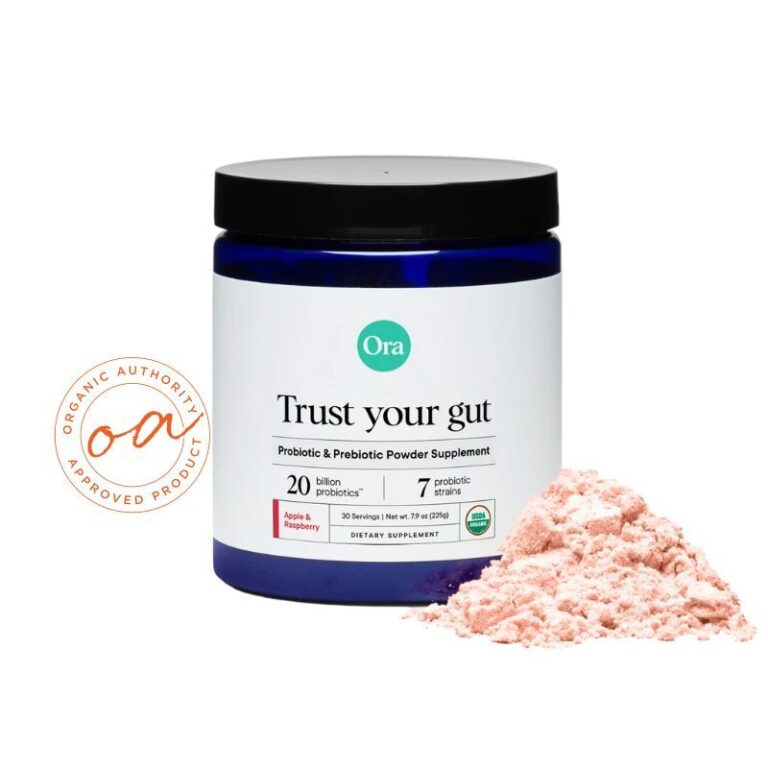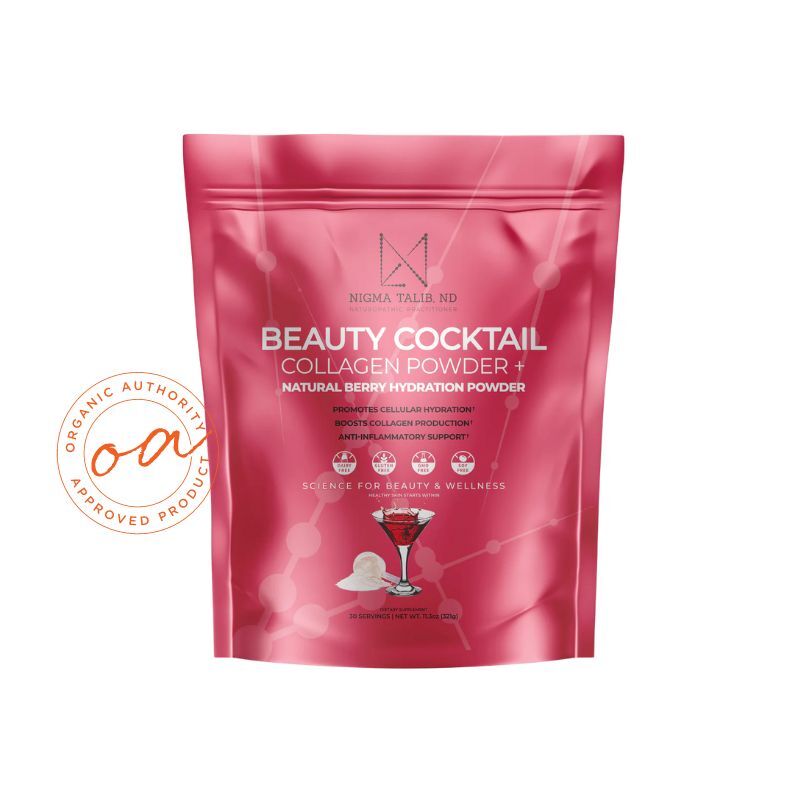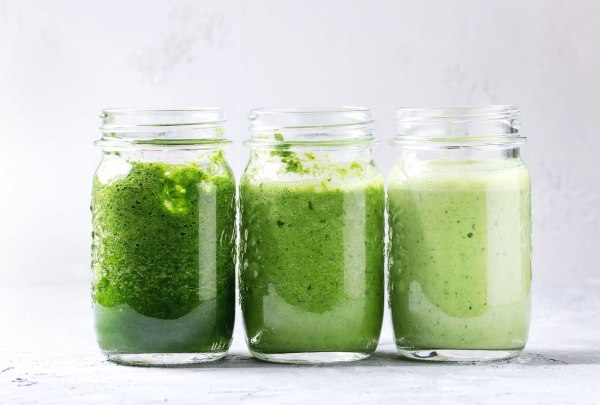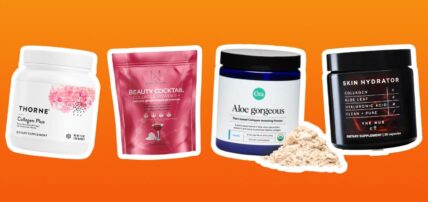Taking Probiotics May be the Key to Clear Skin According to Experts, Here’s Why
We get to the bottom of the question, ‘can taking probiotics for skin really help clear it up?’ According to a team of scientists, doctors, and innovators, - yes, a healthy gut is key.

You’ve most likely heard of probiotics as they pertain to gut health and digestion. Their benefits have been widely touted and we often hear about them being found in fermented foods such as yogurt or kimchi. But what exactly are probiotics and how do they relate to our skin? We sat down with an expert to get to the bottom of probiotics and healthy bacteria.
Seed is “an ecosystem of kindred scientists, doctors, innovators, entrepreneurs, and translational storytellers from around the world [who] collectively believe in the potential of the microbiome to improve human and planetary health.” They have a line of synbiotics (probiotics + prebiotics) designed to promote digestive, heart, metabolic, and skin health. They spoke with us about how probiotics work and why we should be using them.
In our guide The Best Natural Beauty and Skincare Supplements to Nourish your Skin celebrity nutritionist Kimberly Snyder says “Probiotics are a game-changer for creating gorgeous skin because when we foster a healthy microflora, our digestion improves, including our elimination of potentially aging, skin-dulling toxins, and we can improve the absorption of beauty nutrients.”
What Are Probiotics Anyway?
Organic Authority: What are probiotics? And in which forms can we obtain them?
Seed: As defined by a 2001 UN – WHO expert panel (chaired by our Chief Scientist, Dr. Gregor Reid), probiotics are ‘live microorganisms that, when administered in adequate amounts, confer a health benefit on the host’. What this means is a strain (not just species) of bacteria must demonstrate efficacy in a human clinical study to be scientifically viable as a ‘probiotic’.
One of the biggest misconceptions about probiotics is that they can be obtained from foods and beverages like yogurt, kombucha, and kimchi. Scientifically speaking, none of those things qualify as a probiotic. Just because something contains live microorganisms, doesn’t mean it satisfies the definition. You might have ingested some bacteria, but do you know which strains? In what quantities? Have they survived the acidic journey through your digestive system and landed in your colon? Have those strains been studied, in those quantities, to actually do something in your body?
Can Probiotics Really Help Your Skin?
OA: Why or how does an ingestible affect our skin? Can you speak to the microbiome’s connection to other aspects of our bodies, outside of the gut? There’s something to be said about the gut-dairy-skin connection, for sure.
Seed: Your body is complex and interconnected, and your gastrointestinal system (home to the majority of your microbiome) sits at the core of it all. It’s connected to and influences everything from immunity and metabolic function to cardiovascular, urogenital, and skin health too. It’s no surprise, considering your skin and your gut actually have similar jobs—manage what comes into your body from the outside world and communicate and relay back to your body’s nervous, immune, and endocrine system.
Specific gut microbes and metabolites (for example, Bacteroides fragilis which produce retinoic acid and polysaccharide A) can promote the systemic induction of lymphocytes, called regulatory T cells, that suppress inflammation such as that observed with psoriasis. (Forbes et al., 2015).
When it comes to probiotics, improvements in gut health are often the most immediate, localized, and conspicuous, but they can actually also have powerful effects across the entire body, including skin health.
How Do You Choose an Effective Probiotic?
OA: How can someone choose an effective probiotic? What should we look for?
Seed: It’s important to first understand not all products marketed as ‘probiotics’ are actually probiotics. Gut mania and the rise of ‘wellness’ have propelled a category filled with misleading messaging, questionable products, hyperbolic claims, and deviations from science.
When choosing a probiotic, we suggest asking the following questions:
- What are the strains (not just species) present? In what quantities?
- What have these strains (in these quantities) been clinically studied to do in my body?
- Where can I view the clinical research?
How Often Should Someone Take a Probiotic?
OA: What’s the frequency or consistency that someone should take probiotics to see results?
Seed: Alongside diet and lifestyle, probiotics (and prebiotics) are complimentary daily tools for proactive health.
As transient microbes, probiotics pass through your colon (contrary to the common misconception that they ‘stick around’ in your gut), interacting with your immune cells, gut cells, dietary nutrients, and existing bacteria to, directly and indirectly, deliver benefits. This is why continuous, daily intake is important to optimize impact.
Some enhance the gene expressions involved in tight junction signaling, which help protect against intestinal permeability (this means tightening your gut barrier). Others trigger neurotransmitters that stimulate muscle contractions for increased motility (think: better, more regular bowel movements). And other bacteria produce byproducts or metabolites like short-chain fatty acids, which have substantial evidence demonstrating their benefits for both metabolic and immune health.
As long as you continue daily intake, beneficial microbes are doing their work inside.
Shop Probiotics, Prebiotics, Skin + Gut Support
Ora Organic Trust Your gut Probiotic & Prebiotic Powder

An essential mix of 7 probiotic species provides a feeling of support to the digestive and immune systems, while lending a sense of balance to the mood, and making your skin and hair look amazing. Backed by prebiotics which enhance the probiotic effects. Organic Apple Raspberry flavor tastes delicious. Add to your favorite smoothie, water or bowl.
$40.99 | 30 Servings| 7.9oz
<SHOP NOW>
Beauty Cocktail Collagen Powder + Natural Berry Hydration Powder by, Dr. Nigma Talib, ND Naturopathic Doctor

This “beauty cocktail” collagen drink formulated by Dr. Nigma combines powerful ingredients to support beautiful skin health and whole-body wellness.
The sustainably-sourced Naticol® fish collagen peptide may support skin elasticity, healthy hair, strong nail, bone health, and joint health.
Probiotics help the balance of bacteria in the gut, which may support immunity.1 Organic lucuma is rich in antioxidants, which are beneficial to immunity.
This delicious drink mix contains potassium, sodium, chloride, magnesium, phosphorus, and manganese to support skin that may feel moist.
It also contains hyaluronic acid too, a skin and joint loving ingredient. Contains five grams of collagen per serving.
$78 | 30 Servings | 11.3 oz
<SHOP NOW>
Going Beyond the Gut Microbiome, We Are All Connected
OA: Is there something else to know about the microbiome?
Seed: Bacteria shows us that everything is connected—the choices we make extend beyond our body, to our earth.
Just as you have a microbiome, so too do coral reefs and rainforests, the soil that supplies our food, and even the built environments of our homes, communities, and cities. Each of these ecosystems is teeming with symbiotic, microscopic life and reveals the systemic health of ourselves and our planet.

Read Organic Authority’s Top Wellness Guides
Dietician Approved Greens Powders Up Your Game Today
The Best Vegan Collagen Powders, Dietician Approved
Chlorella Powder May be the Secret Energizing Green You Need
Is Wheatgrass Everything Health Nuts Claim?
The Ultimate Guide to Wellness in the Swiss Alps
Step Inside the Legendary Golden Door Resort and Spa
Sources:
- https://www.sciencedirect.com/science/article/abs/pii/S0308814615008559?via%3Dihub











